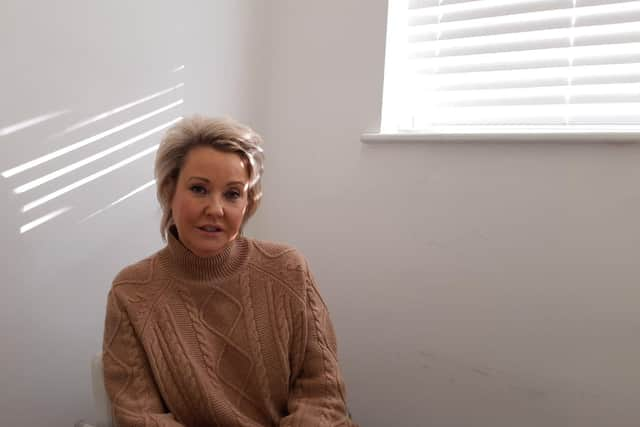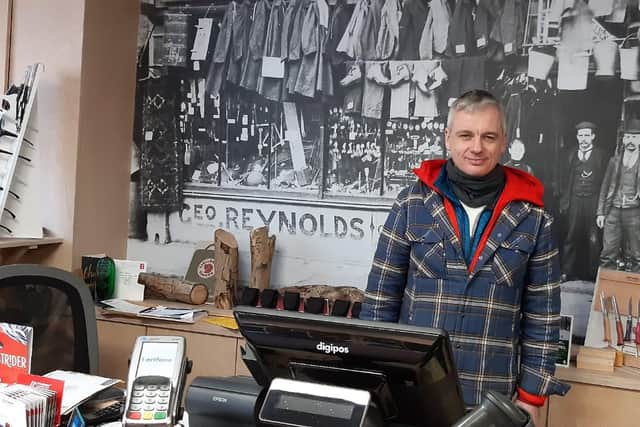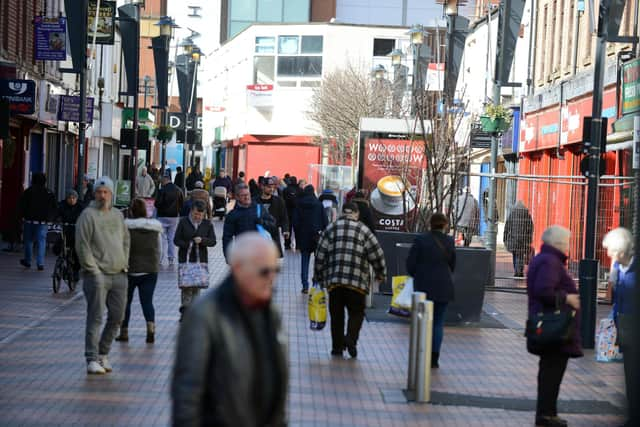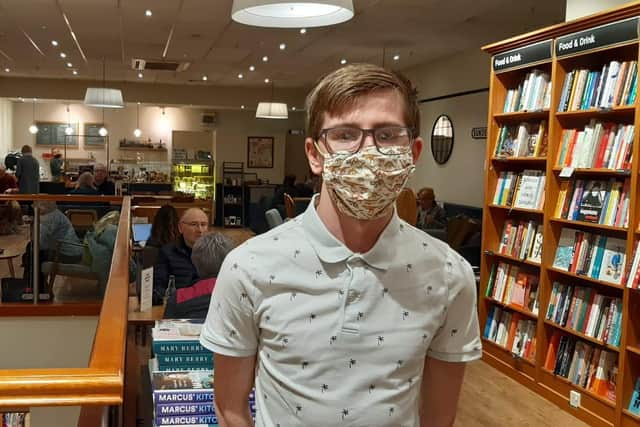Pandemic 'cost Sunderland businesses 29 weeks' takings', claims report
and live on Freeview channel 276
Centre for Cities’ has published its Cities Outlook 2022 – an annual economic assessment of the UK’s largest urban areas.
The report says the virus and its impact on business through lockdowns and the number of people working from home, has cost Sunderland city centre the equivalent of 29 weeks’ business and left one in five commercial premises in the city centre vacant.
Advertisement
Hide AdAdvertisement
Hide AdNewcastle was worst affected in the region, losing 39 weeks of sales between the first lockdown and Omicron’s onset and with almost one in three city centre units now vacant.
Nationally, Covid-19 has cost businesses in city and large town centres more than a third (35%) of their potential takings since March 2020, with central London, Birmingham, Edinburgh and Cardiff worst affected.
The report says policy for more prosperous towns and cities should concentrate on encouraging leisure visitors to return workers to go back to the office.
For places which were already struggling, the focus should be on dealing with fundamental economic problems by investing in skills and ways to strengthen the wider local economy to increase money in shoppers’ pockets.
Advertisement
Hide AdAdvertisement
Hide AdCentre for Cities chief executive Andrew Carter said: “While the pandemic has been a tough time for all high streets it has levelled down more prosperous cities and towns in the North East.


"Despite this, the strength of their wider local economies means they are well placed to recover quickly from the past two years.”
Business bosses across Sunderland city centre shared their response to the report.
John Bate, manager of Gatsby in Park Lane, said he thought the 29-week figure was pretty accurate.
Advertisement
Hide AdAdvertisement
Hide Ad“I was thinking about it the other day and that seems about right,” he said.


"Here in the North East, we went into tier 3 lockdown about a week before the rest of the country."
Business was slowly returning to normal but a lot of people still had concerns, said John.
"If were were operating at ten before the lockdown, we are probably operating at six or seven now – it is coming back slowly but there just seems to be a whole crowd of people, who are worried about coming out.
Advertisement
Hide AdAdvertisement
Hide Ad"Of course, there ware still a lot of people who couldn’t wait- if you turned 18 during lockdown, you couldn’t go out. Now they are 19 or 20 and catching up.”


Anthony Reynolds is the fifth generation of his family to run Reynolds outdoor in Derwent Street, the city centre’s oldest retailer.
He said the pandemic had hit the business in a number of ways, not just through reduced footfall but in areas such as equipment here, with many school trips and holidays been cancelled, and in problems with the supply chain.
"We were shut through all three lock-downs and we don’t have much of an on-line presence, so we didn’t really get too much business through that,” he said.
Advertisement
Hide AdAdvertisement
Hide AdThe pandemic had made it more difficult to predict stock levels and many suppliers were now asking for orders a long way in advance or reducing their ranges in order to concentrate on the core product lines they knew would sell.
One upside was that the people who were buying, were tending to buy more: “We are finding that people will spend a bit more – the basket size probably a little bit better,” he said.
Across the road, Brenda Coade and her team at Designer Childrenswear were kept busy through the pandemic, even during lockdown.


The business attracts customers from a wide area – but also has a thriving on-line operation, which came into its own during lockdown.
Advertisement
Hide AdAdvertisement
Hide Ad"We didn’t furlough anybody from the business - we just carried on doing what we were doing,” said Brenda.
"We felt that we had more work in the on-line area, so that is what we did. A lot of our customers were buying on-line and getting parcels delivered."
Brenda had seen a surge in visitor numbers after the first lock-down was lifted, but not so much subsequently.
"A lot of people initially really wanted to come in after the first lock-down but after that it was not so busy because people were a little bit more scared,” she said.
Advertisement
Hide AdAdvertisement
Hide Ad"I think it is starting to get back to normal but there is still a little bit of uncertainty out there.”
The popular cafe above Waterstones in the Bridges was one of the hardest hit city businesses, being forced to close for more than a year.
"We were closed all the way from the first lock-down to May 2021,” said manager Kyle Dixon.
Even when the cafe did reopen, it was soon forced to close again temporarily when Covid hit the bookshop’s staffing levels in the vital run-up to Christmas.
Advertisement
Hide AdAdvertisement
Hide Ad"We had to close for two weeks from December 22 because our staff had to be transferred downstairs to help with the store side of the business,” said Kyle.
Things are now beginning to return to normal and both bookstore and cafe have just enjoyed bumper weeks: “This week has probably been the best we have had in a long time,” said Kyle. “The cafe was the best performer in our cluster of the company.
“Things are finally starting to pick up. People are starting to want to venture out again.”
Sunderland City Council leader Coun Graeme Miller said work was under way to boost Sunderland’s economy and help the city recover from the impact of the virus: “There is no doubt that the pandemic has had a devastating impact on a number of sectors, retail and leisure chief among them,” he said.
Advertisement
Hide AdAdvertisement
Hide Ad“During the height of restrictions, Sunderland City Council mobilised funds provided by Government to ensure those hardest hit were supported to stay afloat and now, as we emerge from this crisis and see an easing of restrictions, we will be doing all we can to ensure that we drive footfall on the high street and put in place pragmatic business support to ensure our traders have the best possible chance of emerging on the front foot.
“As well as promoting the fantastic businesses we already have here, we are working hard to make our city centre an economic motor, leading ambitious regeneration projects to ensure that Sunderland city centre becomes a magnet destination.
"This will see us bring additional businesses into the heart of Sunderland, in the brand new commercial spaces that are taking shape at Riverside Sunderland.
"In all, they could attract 10,000 workers to the area. More than 1,000 new homes will also be built in the heart of the city, which will ensure that more than 2,500 more people live within a short walk of the retail heart of Sunderland, in turn driving footfall and spend with our businesses.
Advertisement
Hide AdAdvertisement
Hide Ad“As we move forward, leisure will be a key focus for us and we’re looking forward to announcing more plans soon.
"In all, we have a vision to reshape the city centre to ensure that it becomes a vibrant and dynamic heart that reflects the ambition of Sunderland.”